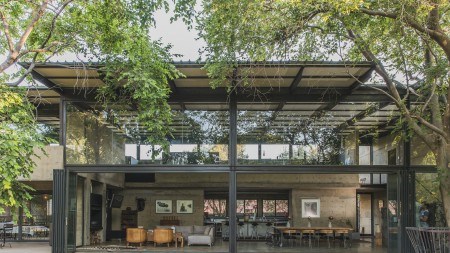First-time home buying weakened nationally in the first three months of 2018, but there were big differences regionally, with Gauteng outperforming other regions significantly.
The positive sentiment that has engulfed the country since the start of the year hasn’t filtered down to the first-time buyers’ market, according to the FNB Estate Agent Survey for the 1st quarter of 2018.
First time buying levels declined to 17.6% of total home buying nationally, from 20.28% in the previous quarter, and well off the high of 28% reached in the 2nd quarter of 2014.
Interest rate hikes and economic weakness have affected the first-time buyers in recent years, with the percentage of first-time buyers declining from the 2nd half of 2014 to the present.
“1st time buyers are typically more sensitive to economic and interest rate cycles than repeat buyers, as on average they are financially weaker and more heavily dependent on credit for their home purchases,” said John Loos, FNB’s Household and Property Sector Strategist.
“In addition, many young aspirant buyers have not yet established a family, meaning that they have greater flexibility in terms of where they live, some remaining in their parents’ home for longer if financial or economic times appear uncertain, or alternatively renting for longer, Loos added.
The 17.6% 1st time buyer percentage is not very weak, when compared to the 12% that it slumped to in the aftermath of the 2008/2009 recession. But as yet, it doesn’t appear that young aspirant buyers are convinced about improving economic conditions in 2018. However, the survey was done in February, and it is possible that the more recent March interest rate cut may bring them out in greater numbers.
Comparing first-time buying levels by region
Analyzing the 1st time buying survey responses by major metro region, reveals major differences.
Gauteng remained the strongest region in the two previous quarters, while Cape Town showed very weak 1st time buying levels.
First-time home buying levels by region:
- Greater Johannesburg - 21.59%
- Tshwane Metro - 30.75%
- Ethekwini Metro 20%
- Nelson Mandela Bay - 10.5%
- Cape Town Metro - 6.46%.
According to Loos, these major differences could be attributed to home affordability trends in recent years. Slow house price growth in Gauteng over the past decade or so has greatly improved home affordability (average house price/average household income ratio), whereas at the other end of the spectrum, Cape Town’s home affordability has deteriorated significantly during recent years of greater market strength and strong house price growth.
And right now, the Western Cape’s economy appears under some threat from a severe drought, which could be contributing to greater aspirant home buyer caution, with many perhaps adopting a “wait-and-see approach to home buying.
Singles versus couples home buying
First-time home buying levels are not only affected by young individuals being more financially constrained than older individuals, it is also about many of them being single and unable to pool their household income with a spouse to buy a house.
A different survey question relating to the estimated percentage of home buyers that are single (versus couples buyers), revealed a multi-year decline in these singles buyers since 2014 too.
Early in 2014, singles home buyers made up an estimated 20% of the market according to the sample of agents. By the 1st quarter of 2018 this had declined to 14%
While the level of first-time buying has not shown an immediate uptick following recent political and economic developments, it could improve later in the year as sentiment improves further and possibly helped by the recent interest rate cut.




